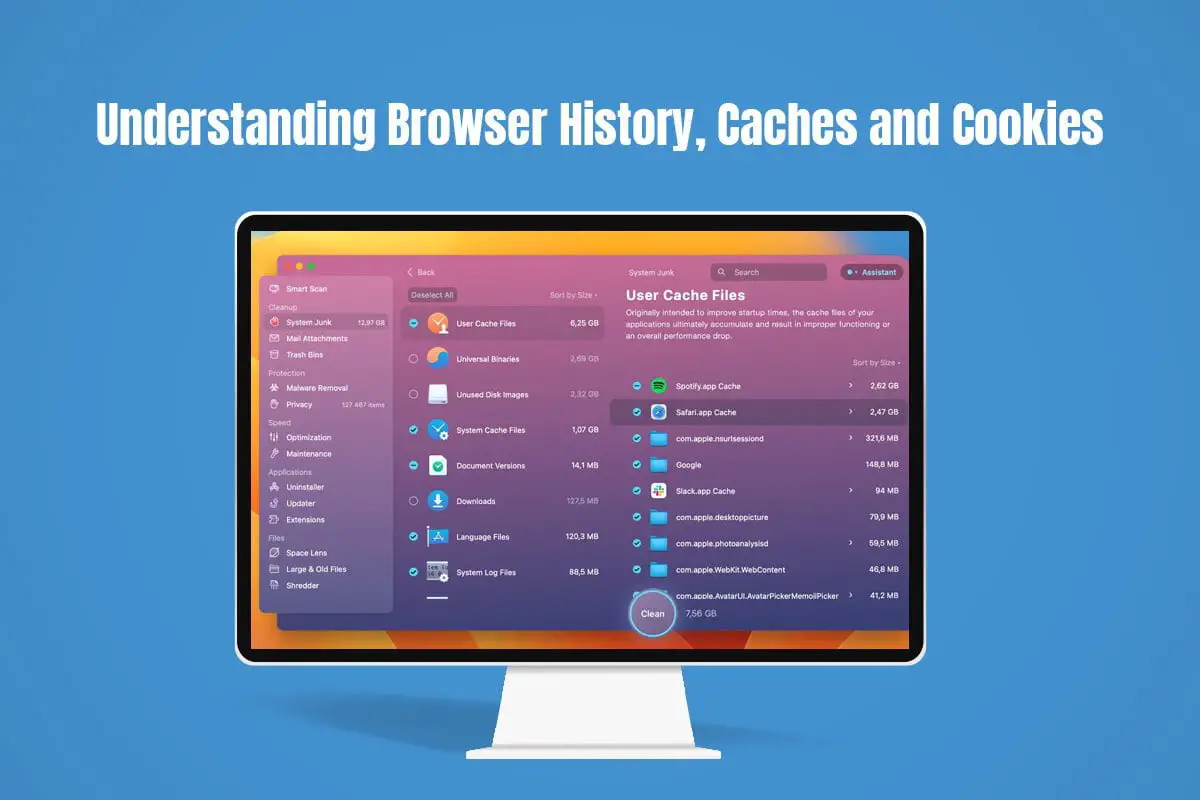All web browsers keep a record of your online activities to improve your browsing experience. Whether you are able to quickly navigate to your most-visited eCommerce website or see an ad regarding your preferred travel destination on social media, it is your browser history that has a role to play. It is essential to understand how your online activity is logged and the different types of data that are stored whenever you visit a site. By staying aware of your browser history, cookies, and caches, you can understand your security and stay safe.
Understanding Browser History, Caches And Cookies
Browser History
Browser history is the record of the websites you have visited in the past. This record stores all the names of the websites you have visited and when you have visited them. The record includes search history, download history, cache, and cookies. Browser history has some advantages. The files are locally stored in a log on the computer, and it is used to track the pages you have visited. Also, the browser auto-completes the website you have already visited for quicker access. The downside of browser history is that it keeps a log of your private searches. If you have a virus or click on malware, hackers can view this log and access sensitive information. They can also use cookies or cache to access your private data. Deleting browser history minimizes the risk of leaking private information into the wrong hands. But this will delete the local copy of the previously visited websites unless you’ve bookmarked them or saved them in your Favorites.
Suppose you are using Safari and wondering how to clear search history on Mac, open Safari and click on the menu. Then, choose clear history. All the websites you have visited will disappear from the history menu, and there won’t be any traces left behind.
Cookies
Whenever you visit a website, you are notified that the website uses cookies, and you have to accept them for a smooth browsing experience. The cookie notification is made compulsory as part of the GDPR regulations. Websites must disclose they are using cookies as they collect pieces of information about your activities or you.
For instance, if you are visiting an online website like an eCommerce site selling products or services, DIY products, or shopping, your future visits to the site will be tailored. The site asks for specific information that lets you log into the sites quickly, and you can gain faster access.
The advantages of your browser storing cookies are that your credentials will be saved, and you can enjoy faster access when you visit the site in the future. If you are interested in a certain product, brand, or supplier, cookies are used to narrow the search and provide you with enticing offers that are related to your specific criteria.
The downside of storing cookies is that your credentials are stored locally in a file when you are accessing a site. Anybody can use your personal browsing history and then bombard you with ads and emails. Personal data stored on your computer is a risk, and if you don’t have the right protections installed, anybody can view this data.
Browser Cache
When you visit a website for the first time, you will notice the site takes some time to load. But when you revisit the site on the same computer the second time, the pages are displayed much quicker. This is because of the stored cache. Your browser uses the cache to give you quicker access to the site or page. So, you can avoid waiting extra seconds to load the page when you revisit it. The advantages of storing browser cache are that latency is reduced, and sites and websites are loaded much faster. If you are browsing on a metered line, this will decrease the network traffic as less bandwidth is used by the client. It also wouldn’t matter if you have forgotten the full path of the URL. But if you have visited the website previously, you don’t need to enter the complete URL. When you start typing its name, suggestions will appear since you had previously visited the site. If you have accidentally hit the back button on a site, the previous site you visited will appear. This is because of the browser’s cache.
However, there are also drawbacks to storing browser cache. If the sites or pages have updated themselves or significantly changed some information, your browser cache will prevent the site or page from loading in its current state. You will see the previous version of the site, or the site won’t load. The cache files are stored locally on the computer, and this takes up significant storage space. So, deleting the browser cache will make space on your computer for other apps and files.
Conclusion
Now you know what browser history, cache, and cookies mean. Clearing them from time to time will enhance your browsing experience and keep you safe.



![How To Clone Linux Hard Drive [ Linux Backup Guide]](https://itsubuntu.com/wp-content/uploads/2023/07/How-To-Clone-Linux-Hard-Drive.jpg)



